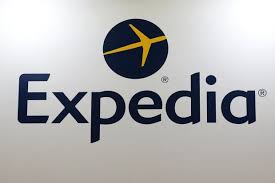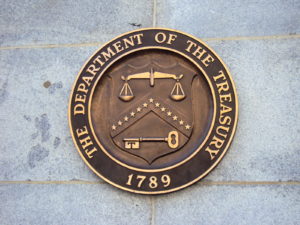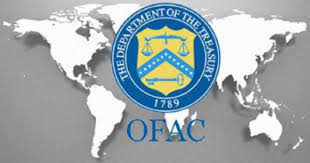U.S. Entities Engaged in M&A Transactions Beware; OFAC Highlights the “Unique Sanctions Risks” Posed by Foreign Acquisitions

Jessica Sanderson, Of Counsel at the Volkov Law Group, rejoins us for a posting on OFAC’s recent enforcement actions involving Expedia and other cases involving acquisitions of foreign-owned companies. Jessica can be reached at [email protected].
On June 13, 2019, OFAC announced a settlement with Expedia Group, Inc. for violations of the Cuban Assets Control Regulations (“CACR”). (Available here). Expedia’s foreign subsidiaries assisted more than 2,200 individuals with travel or travel-related services for travel within Cuba or between Cuba and locations outside of the United States. OFAC faulted Expedia, the U.S. parent company, for failing to take necessary steps subsequent to its foreign company acquisitions to prevent and detect sanctions violations. Specifically, [w]ith respect to at least one foreign subsidiary, Expedia failed to inform the subsidiary until approximately 15 months after Expedia acquired the subsidiary that it was subject to U.S. jurisdiction and law. Expedia was slow to integrate the subsidiary into the Expedia corporate family, including with respect to compliance with U.S. sanctions, and the subsidiary continued operating independently during the integration period.”
In publishing the Enforcement Information, OFAC sent a clear message to all U.S. companies involved in M&A activity:
U.S. companies can mitigate risk by conducting sanctions-related due diligence both prior and subsequent to mergers and acquisitions, and taking appropriate steps to audit, monitor, train, and verify newly acquired subsidiaries for OFAC compliance. U.S. foreign subsidiaries are subject to the CACR, and U.S. person parent companies may face potential exposure to civil monetary penalties vis-à-vis the actions of their foreign subsidiaries. Foreign acquisitions can pose unique sanctions risks, to which a U.S. person parent company should be alert at all stages of its relationship with the subsidiary.

Moral of the story: Expedia should have acted more expeditiously. But the Expedia enforcement action is most significant insofar as it marks the fourth time this year that OFAC has taken a hard stance with respect to sanctions compliance following foreign company M&A.
On February 7, 2019, OFAC announced a settlement with Kollmorgen Corporation, a U.S.-based company, on behalf of its Turkish subsidiary, Elsim Elektroteknik Sistemler Sanayi ve Ticaret Anonim Sirketi (“Elsim”). (Available here). The settlement concerned Elsim’s apparent violations of the Iranian Transactions and Sanctions Regulations (“ITSR”), by providing services in Iran and selling products with knowledge that they were destined for Iran.
Kollmorgen discovered Elsim’s Iranian transactions during pre-acquisition due diligence, and “implemented a wide range of pre- and post-acquisition compliance measures designed to ensure Elsim complied with U.S. sanctions,” including, but not limited to: ordering Elsim’s senior management to immediately cease transactions with Iran; conducting a comprehensive customer review; applying controls to block Iran-related customers’ orders; circulating a cautionary memo and providing in-person trade compliance training to Elsim employees; modifying terms and conditions of sale to prohibit Elsim’s customers from reselling Elsim products to Iran; and setting up an ethics hotline for reporting violations of law. Kollmorgen even obtained quarterly certifications from Elsim’s senior management (falsely) confirming that no Elsim products or services were being sent or provided to Iran. Nevertheless, “[i]n spite of Kollmorgen’s extensive efforts to ensure Elsim complied with the ITSR,” Elsim sent employees to Iran to fulfill service agreements and Elsim management directed employees to falsify corporate records to hide the violations.
Kollmorgen acquired control of Elsim in March 2013. The sanctionable conduct commenced just four months thereafter in July 2013. Because of “Kollmorgen’s extensive preventative and remedial conduct,” OFAC agreed to a substantially reduced penalty amount ($13,381, which was less than the value of the parts and services sold to Iran and carried a base civil monetary penalty amount of $750,000).
Again sending a message to all U.S. companies involved in foreign company acquisitions, OFAC stated:
The settlement highlights the importance of performing heightened due diligence when U.S. persons, directly or indirectly, acquire companies with preexisting relationships with sanctioned persons and jurisdictions. It also identifies compliance measures the U.S. company took pre- and post-acquisition of a foreign company and specific remedial actions.”
Notably, in conjunction with the settlement, OFAC also designated the managing director of Elsim, a Turkish national, who allegedly directed and tried to conceal the sanctions violations, individually as a U.S. sanctions target under the “Foreign Sanctions Evaders” program. OFAC stated in its press release that the settlement “marks first time OFAC has named an individual a Foreign Sanctions Evader in relation to a civil enforcement action.” (See here).

One week later, on February 14, 2019, OFAC announced a $5.5 million penalty assessment against AppliChem GmbH, a German company that manufactures chemicals and reagents for the pharmaceutical and chemical industries, for directly and indirectly selling chemical reagents to Cuban nationals. (Available here). On January 1, 2012, Illinois Tool Works, Inc. (“ITW”), a U.S. company, acquired AppliChem. ITW discovered the Cuban sales during pre-acquisition negotiations and warned AppliChem that it would be required to cease all Cuban transactions after the acquisition. Within two weeks of the acquisition, the General Manager of ITW’s Reagents Division sent AppliChem’s former owners (who remained with ITW following the acquisition as manager-employees) a memo explaining ITW’s guidelines for complying with U.S. sanctions, including the Cuban-related sanctions. Notwithstanding the two warnings, AppliChem continued to complete and collect on existing orders with Cuban nationals under pre-acquisition contracts. Upon discovering the continued transactions, ITW’s European legal department sent a third warning to AppliChem’s former owners to cease all transactions in Cuba immediately. ITW later learned through its ethics hotline that AppliChem continued to make sales in Cuba through an intermediary in Berlin, despite AppliChem specifically representing to ITW that it had ceased all Cuban sales.
The sanctionable transactions on which the penalties were based occurred between May 2012 and February 2016. That means AppliChem was liable for failing to comply with U.S. regulations as soon as four months following the acquisition. OFAC warned U.S. companies:
This case demonstrates the importance of (i) implementing risk-based controls, such as regular audits, to ensure subsidiaries are complying with their obligations under OFAC’s sanctions regulations, (ii) performing follow-up due diligence on acquisitions of foreign persons known to engage in historical transactions with sanctioned persons and jurisdictions, and (iii) appropriately responding to derogatory information regarding the sanctions compliance efforts of foreign persons subject to the jurisdiction of the United States.
Last, on March 27, 2019, OFAC announced a $1.87 million settlement with Stanley Black & Decker, Inc. (“Stanley”) resolving allegations that its recently acquired Chinese subsidiary, Jiangsu Guoqiang Tools Co. Ltd. (“GQ”) knowingly provided power tools and parts to Iranian end-users via third-party intermediaries. (Available here). In addition to the monetary penalty, Stanley agreed to adopt several compliance reforms.

In May 2013, Stanley acquired 60% of GQ (see here), making it subject to the Iranian Transactions and Sanctions Regulations (the “ITSR”) as a foreign entity owned or controlled by a U.S. company. As in the AppliChem and Kollmorgen cases, Stanley learned of the Iranian sales before acquisition and even made ceasing such sales a prerequisite to closing. Following the acquisition, Stanley provided sanctions training to GQ employees, and GQ executed written agreements to not engage in transactions with Iran. Nevertheless, GQ continued to export goods to Iran. The sanctionable conduct occurred between June 29, 2013 through December 30, 2014, in the first several months following the acquisition. The Stanley settlement makes clear that OFAC expects the immediate adoption and implementation of compliance controls when U.S. companies acquire foreign companies that transact business in sanctioned jurisdictions.
With four penalty actions in the first half of this year alone directed at U.S. companies that acquire ownership or control of foreign entities, OFAC’s message is clear: OFAC expects sanctions-related pre-acquisition due diligence and prompt, comprehensive action to assess, monitor, train, control, and verify newly acquired subsidiaries for OFAC compliance. Even in cases where the newly-acquired company affirmatively misrepresents compliance and falsifies records to hide non-compliance, companies face significant penalties for violations. Through these enforcement actions, OFAC also has identified specific compliance and control measures that U.S. companies should take in connection with foreign company acquisitions, and companies should review their policies and procedures to ensure they meet these expectations of compliance.
The Volkov Law Group assists several clients with evaluating and strengthening their sanctions compliance programs and training their employees to satisfy OFAC’s expectations as stated in their publications, including the foregoing actions and the new “Framework for OFAC Compliance Commitments” (here), and our lawyers are available and happy to help you in this regard.















